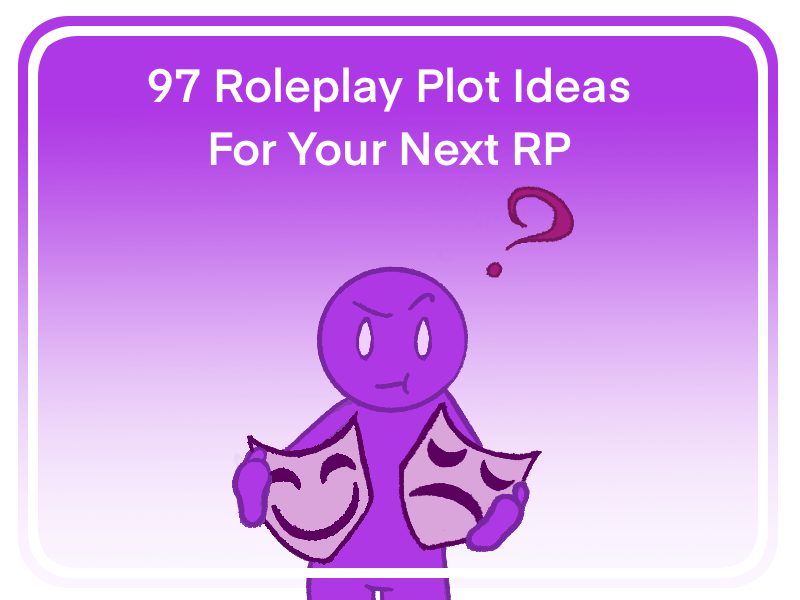Okay, so you’re asking about how I come up with RP ideas? Man, it’s been a journey, not gonna lie. It wasn’t like I just woke up one day and poof, brilliant scenarios appeared.

My Early Stumbles
At first, I was just staring at a blank screen, or a blank piece of paper. You know that feeling? Total brain freeze. I tried to force it. I’d think, “Okay, I need a fantasy idea,” and then… nothing. Or I’d come up with something super generic, like “a knight has to save a princess.” Yawn. Been there, done that, a million times.
I remember spending hours, literally hours, just getting frustrated. I’d get up, walk around, make some coffee, sit back down, and still… crickets. It was like my brain was actively resisting coming up with anything original.
Figuring Out a Process (Sort Of)
So, I had to change how I was doing things. I started just jotting down random words. Anything that popped into my head. “Shadow,” “clockwork,” “whisper,” “desert,” “library.” No pressure, just words. Sometimes I’d pick two or three random words and try to see if they sparked anything. “Shadow clockwork library” – okay, maybe there’s something there? A library that only appears in shadows and is run by clockwork beings? It was a start.
Then I moved on to asking “what if” questions. This was a big step for me. Instead of trying to invent a whole world, I’d just pose a simple question.
- What if gravity suddenly became selective?
- What if people could only communicate through dreams for a week?
- What if animals started developing human-like intelligence in one specific town?
These little prompts were easier to tackle.

I got myself a dedicated notebook. Not a fancy one, just a cheap spiral-bound thing. And I made it a rule to write down at least three “what if” scenarios or a few random word combos every day. Most of them were duds, absolute trash. But the act of doing it seemed to loosen things up in my head.
Digging Deeper and Keeping Track
Once I had a few half-baked notions, I would pick one that seemed even remotely interesting. Then I’d start layering. Okay, “animals developing human-like intelligence in one specific town.”
Next, I’d ask:
- Which animals? All of them? Just one species?
- How do the humans react? Fear? Curiosity? Do they try to exploit it?
- What’s the first sign something is wrong (or different)?
- Is there a specific character who notices first? A kid? A reclusive old scientist?
I began to realize that the best ideas for me weren’t about some grand, epic plot. They were about a compelling situation and how people (or creatures) reacted to it. The details made it interesting. I started to really think about the core conflict. What’s the main problem here? What do people want?

To keep track, I switched from the notebook to a simple text file on my computer for a while, then to a very basic note-taking app. Nothing fancy. I’d have a main heading for the core idea, then bullet points for potential characters, key scenes, interesting twists, or just random thoughts related to it. I made sure to write down even the silly bits, because sometimes they led to something better later on.
What I Do Now
So, these days, my “process” is still a bit messy, but it’s a productive mess. I still do the random word association and “what if” thing when I’m feeling stuck. I read a lot, watch different kinds of shows, listen to music – not actively looking for ideas, but just letting my brain soak things in. Sometimes an idea will just click while I’m doing the dishes or out for a walk.
The key for me was to stop judging my initial thoughts so harshly. I let myself come up with bad ideas. Tons of them. Because hidden in that pile of nonsense, there’s usually a gem or two. Or at least something I can polish up. I found that just starting, putting something – anything – down is the most important step. You can always fix a bad page, but you can’t fix a blank one. It’s all about just getting those initial sparks recorded and then fanning the flames a bit to see what catches fire.










